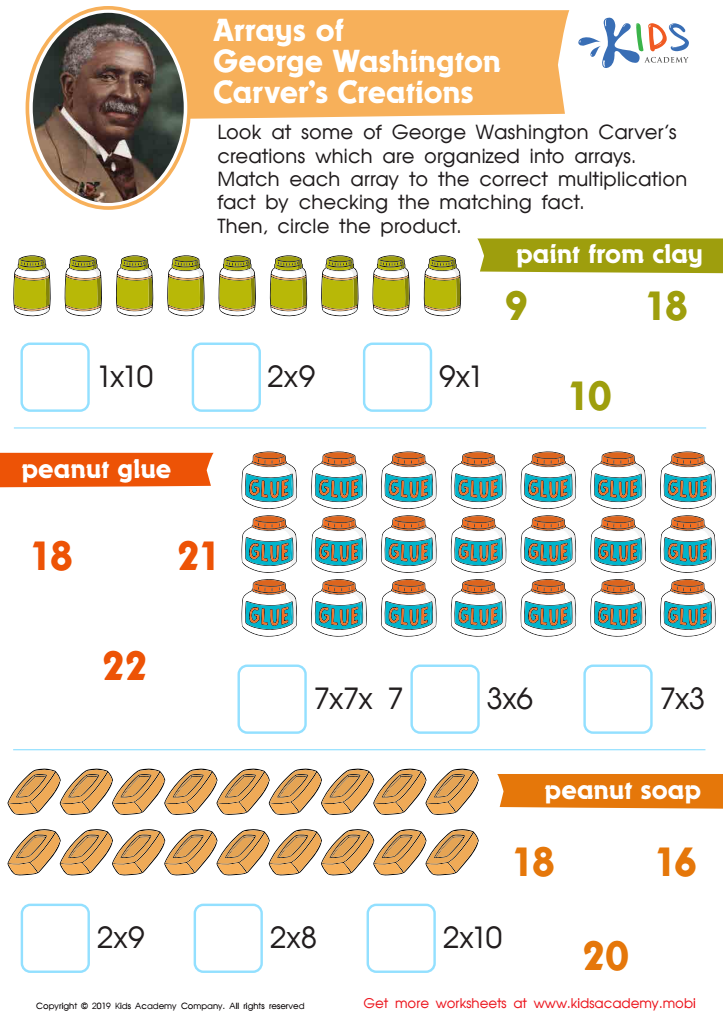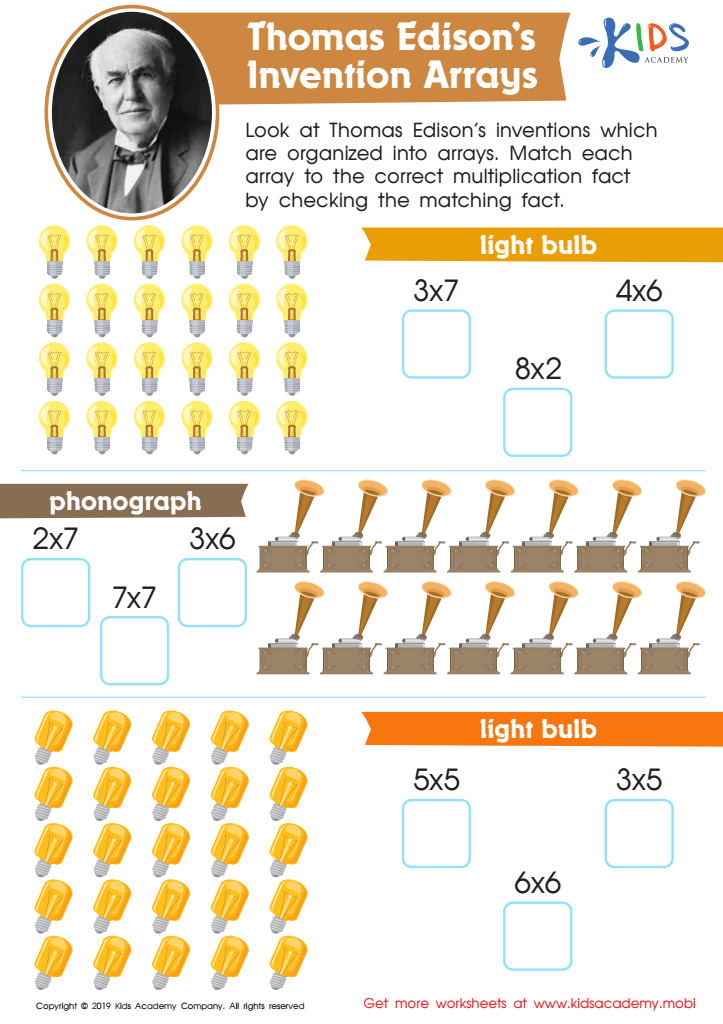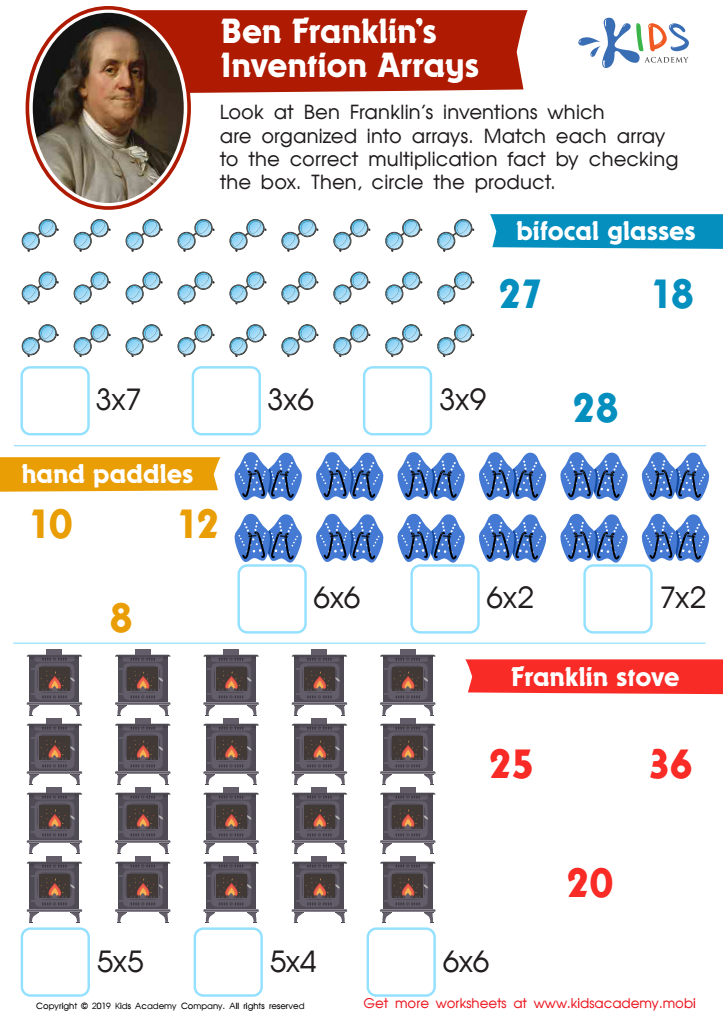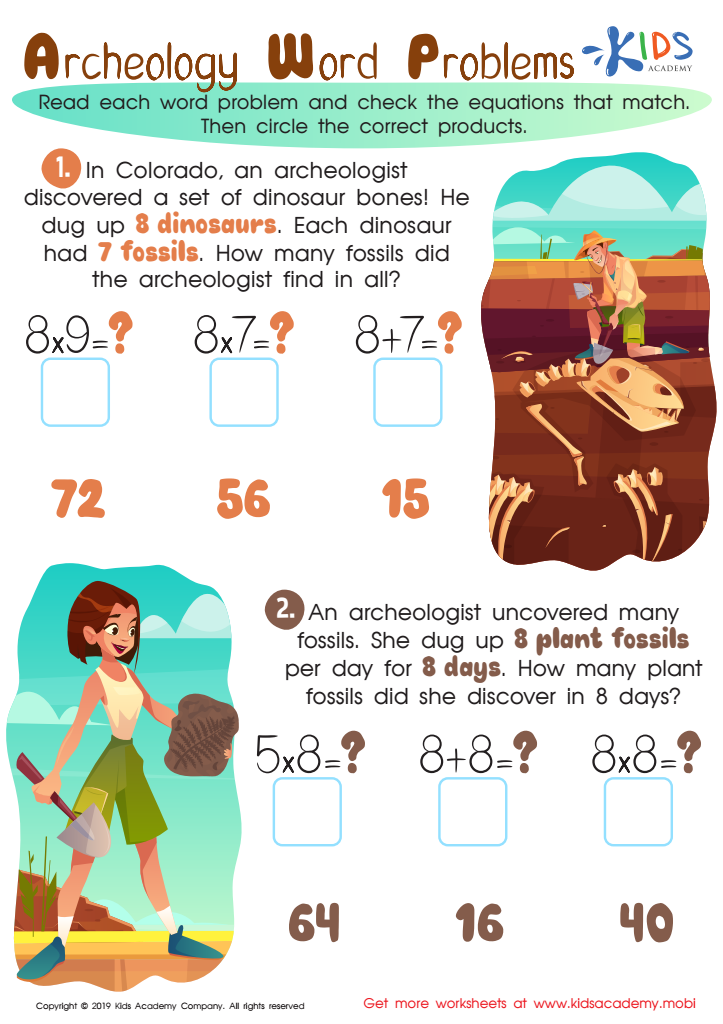Historical Knowledge Normal Multiplication Worksheets for Ages 6-9
4 filtered results
-
From - To
Explore our engaging Historical Knowledge Normal Multiplication Worksheets designed for children aged 6-9. These worksheets provide a unique blend of multiplication practice and fascinating historical trivia, making math both educational and fun. As kids solve multiplication problems, they will also discover interesting facts about historical figures, events, and cultures. Our worksheets cater to different learning styles, encouraging young learners to enhance their math skills while developing a passion for history. Ideal for classrooms or homeschooling, these printable resources promote critical thinking and curiosity. Start your child’s journey into mathematical mastery and historical exploration today!


Arrays of George Washington Carver’s Creations Worksheet


Thomas Edison’s Invention Arrays Worksheet


Ben Franklin’s Invention Arrays Worksheet


Archeology Word Problems Worksheet
Parents and teachers should prioritize historical knowledge of normal multiplication for children aged 6-9 for several important reasons. Firstly, understanding multiplication establishes a foundational skill critical for future mathematical concepts, such as division, fractions, and even algebra. Mastery of multiplication enhances children's confidence and problem-solving abilities, empowering them to engage more deeply in math-related tasks.
Moreover, historical context enriches learning. When children learn about the origins and evolution of multiplication, they develop a more profound appreciation for the discipline. Understanding how different cultures approached multiplication enhances their critical thinking and cultural awareness, linking mathematics to real-world applications. This interdisciplinary approach not only helps consolidate their mathematical skill set but also nurtures curiosity.
Finally, the early introduction of these concepts cultivates perseverance and a growth mindset. Learning the history of multiplication highlights the creativity of human innovation and collaboration in solving problems throughout time, encouraging learners to think beyond numbers. Engaging with multiplication through both its techniques and history can make math more relatable and enjoyable, helping foster a lifelong love for learning in children, motivating them to explore more complex concepts in the future. Therefore, fostering a solid understanding of multiplication is essential for their academic and personal growth.
 Assign to My Students
Assign to My Students















